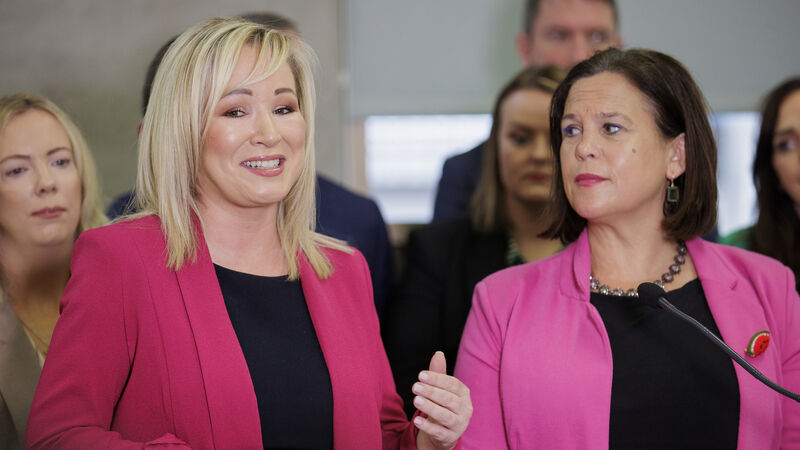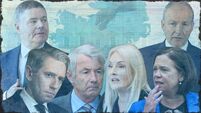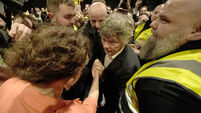Irish Examiner view: Sinn Féin faces into election north of the border

Sinn Féin vice president Michelle O'Neill, left, and Sinn Féin's president Mary Lou McDonald will be very lucky if the party gains an extra seat in the British general election.
While all the talk in and around Leinster House following the electoral successes of both Fine Gael and Fianna Fáil was around whether Taoiseach Simon Harris should go to the well again and call an early election, the under-performing Sinn Féin is focused on another campaign altogether.
With the British general election just three weeks away, it has become vital for the party and its leadership to right the collective Sinn Féin ship quickly and, with 14 candidates standing in the North, a good performance at the ballot box is seen as essential for several reasons.
















